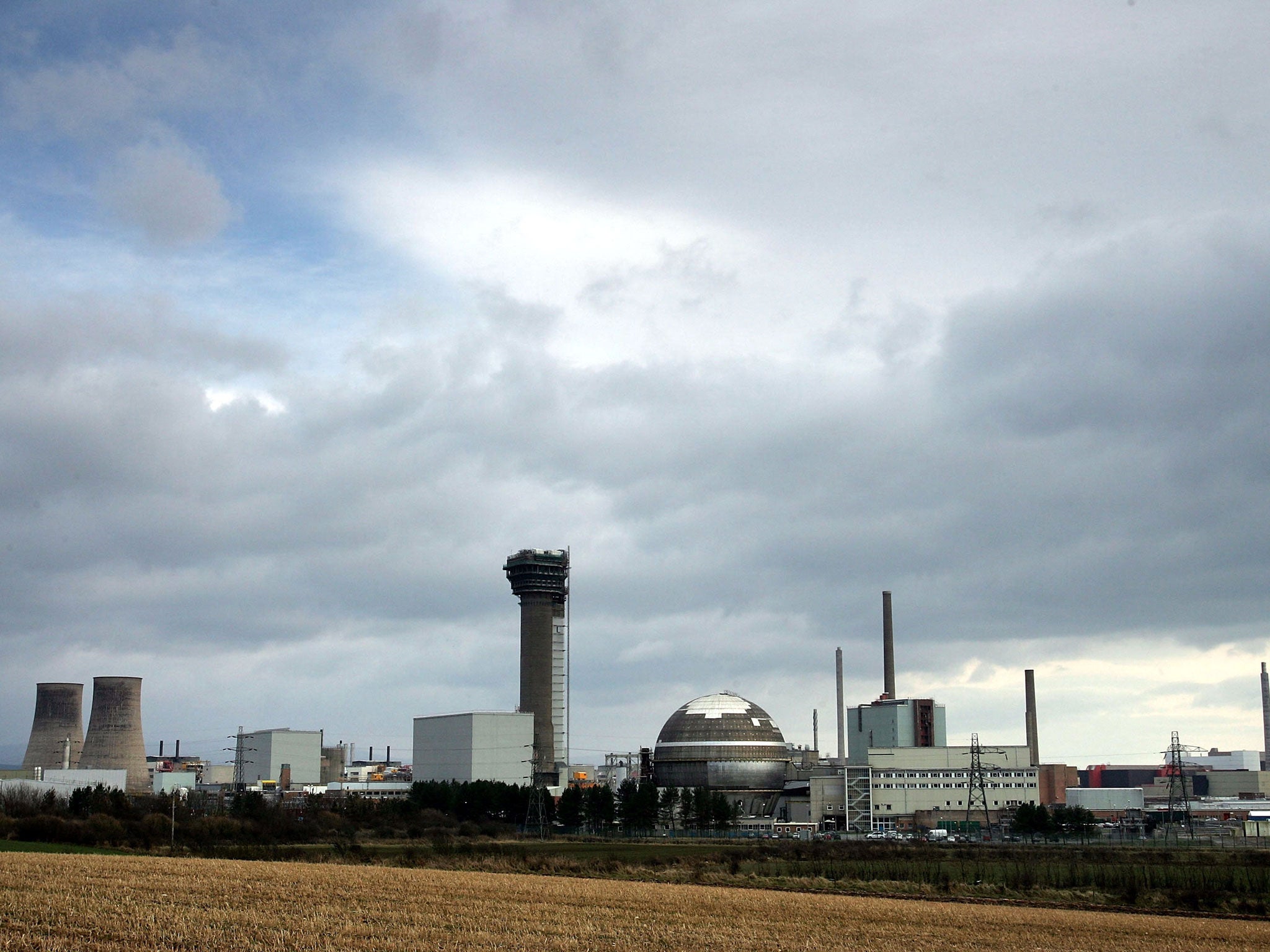Sellafield chief may have misled MPs over clean-up programme
Evidence to a select committee has been questioned by workers

A powerful committee of MPs will investigate whether they were given misleading evidence by the boss of Sellafield nuclear facility during a probe into the £70bn-plus cost of cleaning up the hazardous site.
Margaret Hodge, the chairwoman of the Public Accounts Committee, pledged last night to re-examine information given to her inquiry by Sellafield managing director Tony Price, after learning his claims conflicted with what is actually happening on site.
At a hearing on Wednesday, Mr Price hailed the vitrification plant, which turns deadly radioactive waste into glass for safer storage, as one of the "successes" of the much criticised way that Sellafield has been run.
When quizzed by Labour MP Meg Hillier over whether there were problems with the plant, he insisted it was running as usual and that staff were able to work there as normal. Mr Price said it was "not correct" that the plant's ventilation system was not working properly.
However, other sources at the nuclear plant said that at that very moment, up to 40 staff were unable to get to their workplaces because of dangerous levels of radiation in part of the plant.
A power cut the previous Wednesday caused ventilation fans to fail and, as a result, an area known as Line 3 was heavily contaminated. The level of radiation is understood to have been 400 times the amount that, if found on a worker's clothes, would prevent them from entering Sellafield's offices or canteens.
A Sellafield spokesman confirmed "cross contamination in operational areas" of Line 3 and admitted that it is "undetermined" when workers will be able to return there. A board of inquiry has been set up to investigate the cause of the power fault.
Ms Hodge said: "It is a very serious thing to mislead a select committee. I'm going to have to take a look at this and we will then decide what action needs to taken if he did mislead the committee."
It is understood that punishments could include calling back Mr Price to give his evidence again, but this time under oath. The Sellafield spokesman insisted that Mr Price's evidence on the ventilation system was "factually correct", but conceded it was "not as helpful as it possibly could have been" and the committee will be sent a clarification note.
Mr Price had been briefed on the state of the vitrification plant on the morning of the hearing. The spokesman insisted that "we reject in the strongest terms any suggestion that the Committee was misled or that the Sellafield MD [managing director] was in anyway uninformed".
An internal email sent to Sellafield staff after the hearing said that "Price acknowledged the difficulties that we have had and the complex challenges that we face, but that progress has been made".
The committee was taking evidence over a highly critical, 292-page report by accounting firm KPMG into the way that Sellafield has been run since Nuclear Management Partners (NMP) took over decontamination duties in 2009. The report said that nine of the 11 biggest projects at the Cumbria site were £2bn over budget, which forced NMP chairman Tom Zarges to admit that he was "truly sorry for any of those events that have cost the British taxpayer money".
Despite those woes, NMP was granted a five-year extension to its deal this autumn. It is believed that John Clarke, chief executive of the Nuclear Decommissioning Authority, which awarded the contract, did not agree with the decision but was over-ruled by senior figures in Whitehall.
The extension shocked unions and the industry at the time. One insider said that Mr Clarke "knows what needs to be done, but he needs to do more work in Whitehall first to get proper support". Another described him as "a good guy" whose hands are tied by the convoluted Sellafield clean-up operation.
Last week, Mr Clarke also revamped the management structure of the NDA, it can be revealed. The role of commercial director – a key executive post – has been axed, meaning that Sean Balmer will leave after eight years at the NDA.
This has led to speculation that Mr Clarke was unhappy with the way NMP's contract extension was negotiated, but NDA sources deny this. NMP is also facing questions over Ian Hudson, its general manager at Sellafield. He was previously the NDA's director for the site, which some see as another example of the "revolving doors" culture in Whitehall in which civil servants take well-paid private-sector jobs in the areas that they looked after in government.
An NMP spokesman said the appointment was made in a "normal and straightforward manner". Between working for the NDA, which he left in early 2012, and NMP, Mr Hudson was with the engineering company URS.
California-based URS is one of the three companies that make up the NMP consortium.
Subscribe to Independent Premium to bookmark this article
Want to bookmark your favourite articles and stories to read or reference later? Start your Independent Premium subscription today.

Join our commenting forum
Join thought-provoking conversations, follow other Independent readers and see their replies